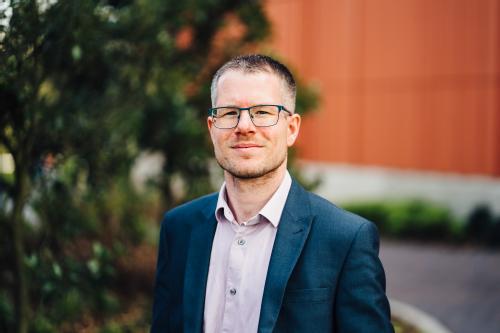Evening Talks Series by Academics on Peace and Reconciliation
Remembering the forgotten blitz: bombing and reconciliation in Paris and Normandy and how Coventry showed the way.
Wednesday 17th September 7pm Dr David Lees, School of Modern Languages and Cultures, University of Warwick.

Biography
David Lees teaches and researches modern French history and politics. In particular, David has worked extensively on the history of France during the Second World War, including the lived experiences of French people under the Vichy government and Nazi Occupation. David is a regular contributor to national and international media and is working on a book on film propaganda in contemporary France.
Talk outline
In 1944, the population of northern and central France were subject to a ferocious and intense bombing campaign by Allied air forces. The civilian populations of Normandy and the industrial suburbs of Paris, in particular Boulogne-Billancourt, home of the Renault factory, faced the brunt of these attacks. Despite causing as much devastation as the Blitz, the experiences of this bombardment have been largely overlooked. It was only in the 2000s that the French people impacted by these bombs were encouraged to speak about their experiences. This talk will explore the ways that the civilian population of northern and central France have used the example set by Coventry and Dresden as a move towards reconciliation with the past.

Why Language Matters: Propaganda and remembering German women's experiences of defeat in 1945
Wednesday 24th September 7pm, Dr Katie Stone, School of Modern Languages and Cultures, University of Warwick

Biography
Dr Katie Stone is an Associate Professor of German Studies at the University of Warwick. Her research focuses on how women’s involvement in National Socialism and their experiences of World War II—especially sexualized violence—have been remembered.
Talk outline
Eighty years after the defeat of National Socialism, one word still has the capacity to provoke heated debate across the political spectrum: “Befreiung,” or liberation. When Berlin announced a one-off public holiday to commemorate Germany’s “liberation from National Socialism and the end of World War II,” the right-extremist party Alternative for Germany led the dissenting voices. Had 8th May really marked the end of violence and the start of freedom for most Germans? Had Germany’s women truly encountered Allied soldiers as liberators and not aggressors? This talk is about the importance of language in allowing German women to tell their stories of defeat—on their own terms and for the purposes of reconciliation rather than propaganda.
**This talk will include references to wartime sexualised violence.

